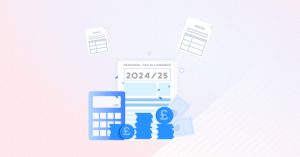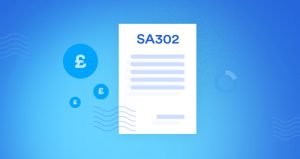Being a director of a company entails additional responsibilities, including completing a director's self-assessment tax return. This is in addition to the company tax return. Both tax returns must be completed and filed with HMRC.
As a director, you are responsible for ensuring that both tax returns are accurate and complete. You must also ensure that it is filed on time. If you do not file the return on time, you may be subject to late filing penalties. In addition, if the return is inaccurate, you may be subject to inaccuracy penalties.
The deadline for the director's self-assessment tax return is 31 January 2023 for the tax year 2021-22. If you file electronically, you have until midnight on this date to file. If you file by paper, your return must be filed before 31 October 2022.
Failure to comply with these requirements can result in significant penalties. Therefore, it is important that you understand your obligations and take action to ensure that both tax returns are filed accurately and on time.
What is included in a self-assessment tax return for company directors?
The self-assessment tax return includes information on the director's income, expenses, and allowances. The self-assessment tax return must be filed with HM Revenue & Customs (HMRC) by the deadline, which is usually 31 January. Company directors who are self-employed or have any other source of income besides their director remuneration or directors’ salary from the company must file a self-assessment tax return. Directors of limited companies are required to file a self-assessment tax return even if they do not receive a salary from the company. In addition to their self-employment income, directors must also declare any dividends they receive from the company being a shareholder. Dividends are taxable as income, and the amount of tax payable on dividends depends on the threshold of the total income and applicable tax rate.
For example, if a shareholder is in the 20% tax bracket, they will pay 7.5% tax on their dividend income for the year 2021-22, which is now increased to 8.75% in 2022-23. The self-assessment tax return is the document that company directors use to declare their income and calculate their income tax liability. HMRC uses the information provided in the self-assessment tax return to calculate the director's Income Tax bill. If the director owes Income Tax, they must pay it by the self-assessment deadline. Directors who do not file a self-assessment tax return or who do not pay their Income Tax bill by the deadline may be subject to late payment penalties and interest charges.
How to complete a self-assessment tax return for company directors?
Register as a self-employed individual with HMRC
It is easy when you get an accountant to register for taxes. All you need to share is your National Insurance number, utility bill, and ID proof. Once we complete the registration, you will be given a Unique Taxpayer Reference (UTR). Get in touch with us today to register.
Gather all the relevant information for your tax return
This includes your company's annual accounts, your personal details, and details of any income or expenses you have incurred over the course of the year. Once you have all this information, you can begin completing your return.
The Self-Assessment tax return is divided into sections, each of which must be completed in full.
- The first section requires you to provide your personal details and UTR.
- The second section asks for information about your finances, including turnover and profit/loss figures.
- The third section is where you declare any income or expenses incurred during the year.
- Finally, in the fourth section, you calculate your tax liability and make any payments that are due.
Once you have completed all four sections of the return, you simply need to submit it to HMRC. You can do this online or by post. If you are submitting it online, you will need to create an account with HMRC and log in using your UTR. Once logged in, simply follow the instructions on how to submit your return. If submitting by post, simply send your completed return to the address provided by HMRC.
That's all there is to it! By following these simple steps, company directors can easily complete their self-assessment tax returns.
Common mistakes made when completing a self-assessment tax return for company directors
- One mistake that limited company directors often make is failing to declare all their income. This includes not only salary and dividends but also any interest from savings or investments or even benefits (such as company car, insurance, etc.).
- Another common mistake is forgetting to claim legitimate expenses. For example, if you use your own car for business travel, you can claim back a percentage of the fuel costs, check out more for business mileage claims here. However, you can only claim for expenses that are 'reasonable' - so it's important to keep receipts and records of all business expenditures.
Penalties for not completing a self-assessment tax return on time
The late filing penalty for a self-assessment tax return is £100 if the tax return is up to 3 months late and it increases daily if delayed any further. This applies even if you do not owe any tax or are due a refund. If you file your return late and owe tax, you will be charged interest on the amount you owe. The late payment penalty is 5% of the tax owed if you pay more than 30 days late and increases to 10% if you pay more than 6 months late. In addition, if you have not paid your tax bill in full by the end of the tax year, you will be charged a further 5% on the outstanding amount. As you can see, it is important to file your self-assessment tax return on time to avoid these penalties.
When to seek professional help with completing your company director's tax return
It can be tricky to navigate completing your company director's tax return, especially if you're also a shareholder. Fortunately, you don't have to go it alone - there are plenty of professionals who can help. Here are a few signs that it might be time to seek out the help of an accountant:
- You're not sure which expenses you can claim
- You're not sure how to calculate your self-employment income
- You're not confident in your ability to complete the return accurately
Don't let the task of completing your company director's tax return overwhelm you - seek professional help if you need it, and you'll be on your way to getting it done stress-free.
Being a company director comes with a lot of responsibility - including ensuring your taxes are filed on time and correctly. Check out other responsibilities of company directors here. Luckily, we're here to help you understand everything you need to know about completing your self-assessment tax return as a company director. This includes what information you need to include, and common mistakes people make. Be sure to file on time to avoid any penalties, and if you're struggling our team of experts is always happy to help. Give us a call today for assistance with your director's tax return!













